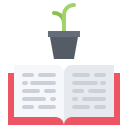
Building Skills and Knowledge with Non-Fiction Literature
Chosen theme: Building Skills and Knowledge with Non-Fiction Literature. Step into a thoughtful, practical space where books become blueprints for real-life progress. Join us, learn boldly, and subscribe to turn every chapter into action.
Why Non-Fiction Supercharges Real-World Skills
From Curiosity to Competence
A reader picked up a negotiation book on a whim, practiced mirroring during a salary conversation, and secured flexible hours plus a learning budget. Non-fiction narrowed the gap between theory and action, transforming a vague curiosity into a repeatable skill.
Evidence Over Guesswork
Non-fiction distills decades of research, field experiments, and expert practice into digestible lessons. Instead of guessing, you adopt proven frameworks, apply them to concrete problems, and refine based on outcomes. That cycle compounds knowledge faster than trial-and-error alone.
Your Turn: Name One Skill
Identify one skill you want to build this month—public speaking, coding fundamentals, or better sleep habits. Tell us in the comments, subscribe for weekly prompts, and let the community keep you accountable as you practice.
Choosing the Right Non-Fiction for Your Goals
Map Goals to Genres
Productivity goals pair well with habit science and behavioral economics; leadership benefits from biographies and organizational psychology; creativity thrives on design thinking and cultural histories. Aligning genre to goal cuts friction and accelerates meaningful progress.


Skim Smart, Decide Fast
Read the table of contents, introduction, and one middle chapter. Scan for repeatable frameworks and concrete case studies. If examples feel generic or untestable, move on. Protecting your attention is a strategic choice that multiplies learning over time.


Active Reading Techniques That Stick
Survey, Question, Read, Recite, Review—condensed. Preview headings, write three questions you hope the chapter answers, then read to solve them. Recite answers aloud, and review tomorrow. This simple loop cements memory and reveals gaps early.
Active Reading Techniques That Stick
Treat the author like a mentor you can challenge. Annotate with why, where, and how questions beside each key point. Note one real scenario from your life where the idea applies. Annotations become action steps, not just highlights.
From Pages to Practice: Turning Insight into Action
Extract one tactic from a chapter and test it in a low-risk context for a week. For example, apply a single meeting agenda template daily. Measure outcomes, then adjust. Small experiments reduce fear and build reliable confidence.
Reading Across Disciplines for Creative Problem Solving
Cross-Pollinate Ideas
Pair a systems-thinking chapter with a biography of a scientist and a design handbook. Seeing one problem through different lenses often reveals hidden leverage points. Cross-disciplinary reading turns isolated facts into practical wisdom.
Case Story: The Chef and the Checklist
After reading about surgical checklists, a head chef introduced a pre-service checklist in the kitchen. Errors dropped, communication improved, and new cooks ramped faster. One non-fiction idea, translated thoughtfully, transformed daily operations.
Create Your Reading Matrix
Choose three domains that intersect with your goal, then select one foundational book from each. Share your matrix in the comments, ask for swaps, and subscribe to see curated matrices from fellow readers.

Staying Motivated Without Burning Out
Define a clear outcome for each book, like a checklist, a script, or a workflow. If a title fails to serve that purpose, retire it guilt-free. Progress, not completion, is the metric that matters most.

